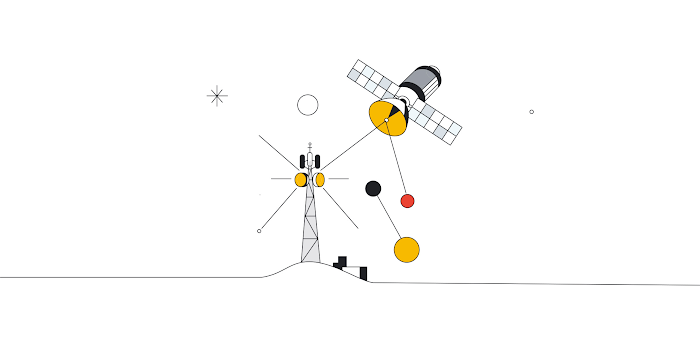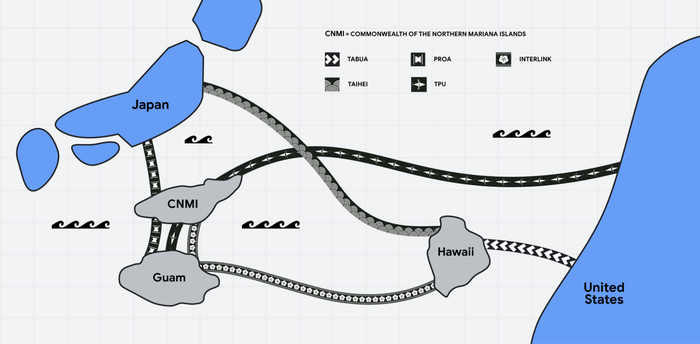EVO2CLOUD - Vodafone’s SAP migration from on-prem to Google Cloud
Mona Abdalla
Technical Account Manager, CCE Telco Industries, Google
Christian Hegmanns
Program & Technology Lead SAP to Google Cloud, IT, Vodafone
Editor's note: Vodafone is migrating its SAP system, the backbone for its financial, procurement and HR services, to Google Cloud. Vodafone’s SAP system has been running on-prem for 15 years, during which time it has significantly grown in size, making this one of the largest and one of the most complex SAP migrations in EMEA. By integrating its cloud-hosted SAP system to its data ocean running on Google Cloud, Vodafone aims to introduce operational efficiency and drive innovation.
Vodafone: from telco to tech-co
Vodafone, a leading telecommunications company in Europe and Africa, is accelerating its digital transformation from a telco to a tech-co that provides connectivity and digital services such as 5G services, IoT, TV and hosting platforms. Vodafone is partnering with Google Cloud to enable various elements of this transformation — from building one of the industry’s largest data oceans on Google Cloud to driving value from data insights and deploying AI/ML models.
One of Vodafone’s core initiatives is ‘EVO2CLOUD’, a strategic program to migrate its SAP workloads to Google Cloud. Vodafone uses SAP for its financial, procurement and HR services; it’s the backbone of its internal and external operations. High availability and reliability are fundamental requirements to ensure smooth operation with minimal downtime. Moreover, hosting SAP on Google Cloud is a foundation for digital innovation and maintaining cybersecurity.
EVO2CLOUD: enabling SAP on Google Cloud
When complete, EVO2CLOUD will have been one of the largest SAP to Google Cloud migrations. Over the course of two to three years, EVO2CLOUD will enable the transformation of a broad SAP ecosystem composed of more than 100 applications that have been running on-prem for the past 15 years, to a leaner, more agile and scalable deployment that is cloud-first and data-led. With EVO2CLOUD, Vodafone aims to improve operational efficiency, increase its NPS score and maximize business value by incorporating SAP into its cloud and data ecosystem, introducing data analytics capabilities to the organization and enabling future innovations. As such, EVO2CLOUD is providing standardized SAP solutions and facilitating the transition to a data-centric model that leverages real-time, reliable data to drive data-based corporate decision making.
SAP’s operating model on Google Cloud
Vodafone foresees a step change in its operating model, where it can leverage an on-demand, highly performant, and memory-optimized M1 and M2 infrastructure at a low cost. Thanks to infrastructure as code, this improved operating model will provide increased capacity, high availability, flexibility and consistent enforcement of security rules. Vodafone is also reshaping its security architecture and leveraging the latest technologies to ensure privacy, data protection, and resilient threat detection mechanisms. Furthermore, it expects to increase its release-cycle frequency from bi-annual rollouts to weekly release cycles, increasing agility and introducing features faster.
In short, Vodafone wants to build agility and flexibility in all that it does — from design all the way to delivery and operations, and DevSecOps will need to be an integral part of its operating model.
Leveraging data to drive innovation
Before migrating to Google Cloud, it was difficult for Vodafone to extract and make use of its SAP data. Now with the transition to the cloud and with Google Cloud tools, it can expand how it uses its data for analytics and process mining. This includes operations and monitoring opportunities to map data with other external sources, e.g., combining HR data from SAP with other non-SAP data, resulting in data enrichment and additional business value. Vodafone is continuing to explore opportunities with Google Cloud to identify even more ways to leverage their data.
Why Google Cloud and what’s Next
In fact, Vodafone is not only building its system on Google Cloud, but rather sees this project as the first step in a three-phase transformation:
Redesigning the SAP environment and migrating to Google Cloud to make it ready for integration with Vodafone’s data ocean.
Integrating SAP with Vodafone’s data ocean that sits on Google BigQuery.
Leveraging cloud-based data analytics tools to optimize data usage, processes, and how Vodafone operates its business.
Moving to Google Cloud is in line with Vodafone’s data-centric strategy, which aims to introduce enhanced features in data analytics and artificial intelligence, and effectively serves Vodafone’s employees and customers in more real-time.
Transformation and change management
The migration to Google Cloud is underway with Vodafone, Google Cloud, SAP and Accenture working together as one team to make this transformation a success.
“An innovative and strategic initiative, co-shaped with a truly integrated partnership. A daily collaboration among four parties, Vodafone, Google, SAP and Accenture are executing the cloud transformation of a complex SAP estate within a compressed timeframe, for rapid benefits realization and accelerated innovations in the cloud.” - Antonio Leomanni, EVO2CLOUD program lead, Accenture
Vodafone recently celebrated the pilot’s go-live, an important milestone in this program. Change management has been fundamental to this transformation, incorporating learning and enablement, financial governance, lifecycle management, security, architecture reviews and innovation. By focusing on these disciplines, Vodafone and Google Cloud are ensuring the success of this transformation and strengthening their partnership.
Conclusion
In conclusion, the SAP migration aligns with Vodafone’s data strategy by enabling a step change towards operational efficiency and innovation, by integrating SAP to Vodafone’s data ocean. The key to the success of this ongoing migration is:
Clear migration requirements and objectives - infrastructure availability, security and resilience.
Strong change management
Application of the right technologies and tools

To learn more about how Google Cloud is advancing the telecommunications industry visit us here.




